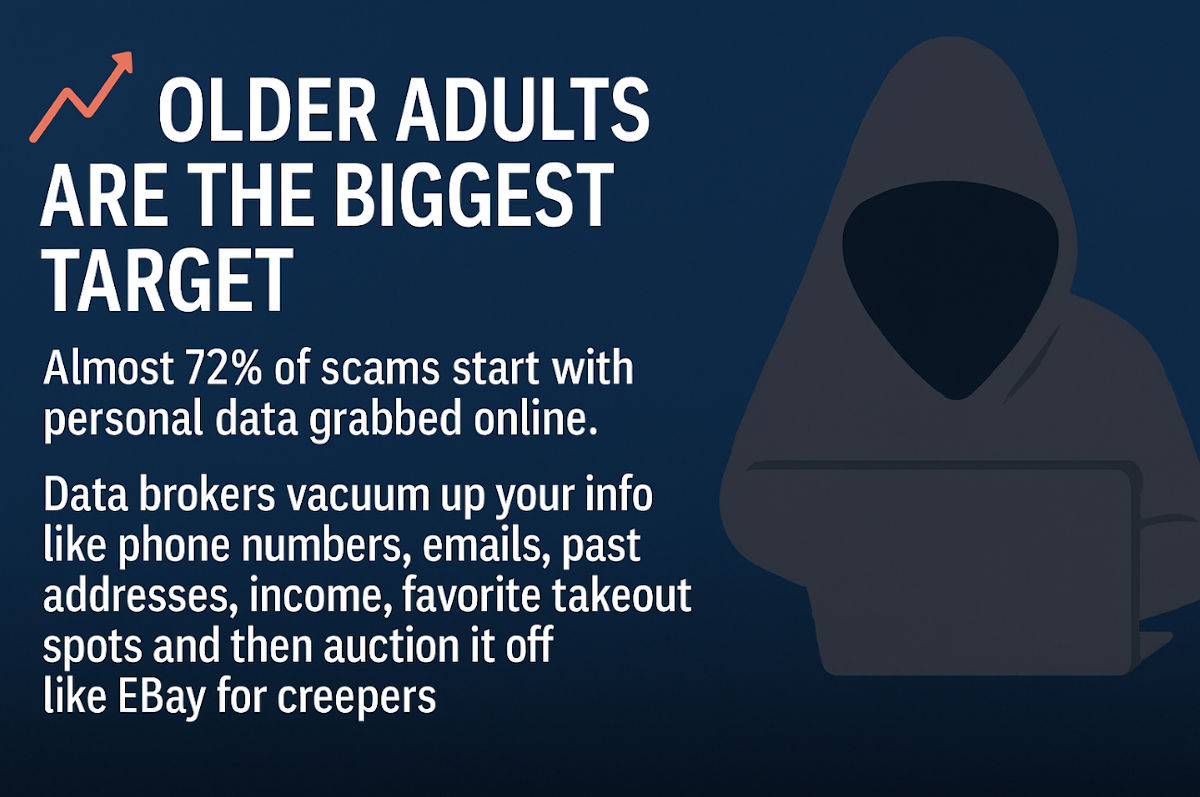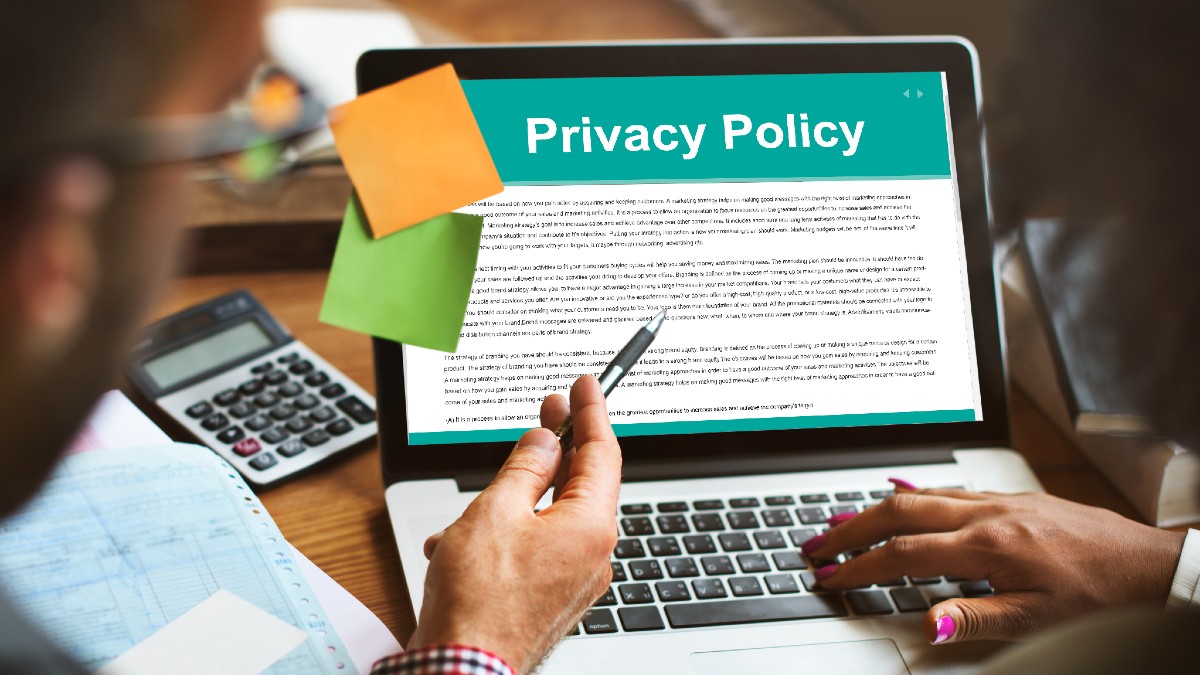Plus, I was in the pool when a spy drone hung out in my yard. I’ll tell you what to do if this happens to you. You don’t have to waste money on Microsoft Office, get out of people search sites, and the best way to get internet off the grid.
Elder fraud is exploding: Your data is making it worse

I’ve got bad news: Today’s online scammers know everything about you. They’re scraping your info and everyone else’s from the web and buying the rest from data brokers and people-search sites.
📈 The stats are scary
Folks age 60-plus are the biggest target. Almost 72% of scams start with personal data grabbed online. Data brokers vacuum up your info like phone numbers, emails, past addresses, income, favorite takeout spots and then auction it off like eBay for creepers.
With this data, they use personalized weapons.
🎯 Criminals know who to target
Study this list. Here’s what these attacks look like:
- AI phone calls that sound like your grandkids.
- Medicare fraud quoting your last doctor visit.
- Calls from “your bank” that know your address.
- Investment traps tailored to your retirement income.
- Romance scams where your “lover” has the same interests.
Live in a state with higher retirement incomes?
You’re in the bull’s-eye. Texas seniors lost an average of $51,700 per complaint. My state, Arizona, had the highest elder fraud rate per capita (3.5 cases for every 1,000 seniors). Yikes.
🛡️ How to fight back
1. Freeze your credit:
Even if you’re not worried about identity theft, a credit freeze keeps crooks from opening accounts in your name.
2. Use call filtering apps:
Try tools like Hiya, Nomorobo or your carrier’s spam call protection. And never answer unknown numbers, voicemail is your friend.
What you need to know about DeepSeek

I’ve been saying it for years: The country that masters AI will dominate the world economically, politically and militarily. Since ChatGPT dropped, the U.S. seemed untouchable. Most of us Americans assumed we were a couple of years ahead of China in terms of AI, but the game has changed — and fast.
Cassette sales skyrocket, side gig brings in 40K/mo and secret keylogger signs
Why I used Incogni to wipe my info off the internet

I got this note the other day from Mike S. (Hi, Mike! 👋): “Next time you talk about Incogni, maybe you can do a deep dive?”
Mike, you’re not the only reader who’s asked for a more in-depth look at how Incogni works and why I chose it to wipe my info from data broker sites. I picked this service before they became a sponsor. So, without further ado …
Data brokers are selling your life. Here’s how to stop them.

The data broker industry is worth almost $400 billion. Whether it’s your Google Search history, movies you’ve streamed or a summary of your last doctor’s visit, they’re keeping tabs on your life.
Feel violated? You should. These brokers even sell your data to scammers so they can use it to target you. No wonder most people get overloaded with spam texts and calls every day.
Simple digital privacy step everyone should know about

Data brokers, people search sites and online background check services, oh my. At the end of the day, they all do the same thing — scoop up your personal info and sell it to anyone interested. Marketers are at the top of the list, but scammers can also find your information this way.
Opt-Out Tuesday: How to remove your info from FamilyTreeNow

People search sites collect your information from publicly available sources and offer it to anyone interested, including thieves and scammers. There are countless sites like this. So, how do you protect your data? You need to remove it.
I ticked off the creepy people-search sites, and you can, too

My son asked me where I lived for a few months in Los Angeles over 25 years ago. It was a gig working for Unisys that was far from memorable. He found that address at a free people search site, along with my other addresses and cell phone numbers. Nice.
Why you should use Google to search for your email address right now

We’ve written a lot of articles about Google searches and online databases. Our online safety is important, and much of that comes down to regulating our searches and learning how to protect ourselves. Tap or click here for seven things to never search for on Google.